Most Afghans will want to put 2021 behind them, especially those who risked their lives to scramble onto foreign flights when the government collapsed on August 15th. But memories of that traumatic day will not fade quickly, especially while the blame game continues.
On 30th December, former President Ashraf Ghani gave his first interview to the BBC to explain why he fled, given that his escape is widely seen as precipitating the collapse of the Republic. Ghani himself did not shy away from blaming others, namely US Special Representative Zalmay Khalilzad, who negotiated the US withdrawal with the Taliban.
This article was submitted by Ben Acheson. Acheson spent seven years deployed to Afghanistan, as Director of NATO’s political team and as Political Adviser to the EU Special Representative before that. His first book ‘Wolves Among Men: The Pashtun Tribes in Afghanistan’ is set to be published in 2022.
This article is the opinion of the author and not necessarily that of the UK Defence Journal. If you would like to submit your own article on this topic or any other, please see our submission guidelines.
Both men, and their personal competition, have dominated post-collapse media analysis and ‘lessons learned’ processes. But the almost singular focus on them is a mistake. It smacks of the same strategic narcissism – “the tendency to view the world only in relation to the United States and to assume that the future course of events depends primarily on U.S. decisions or plans” – that routinely undermined Western efforts in Afghanistan. It will prevent the right lessons from being learned and it risks reducing the blame that is levied at the Taliban.
But overlooking the Taliban’s role is not entirely new.
“The war is being moved from the south to the north” was the phrase uttered by anti-Taliban factions from 2015 onwards, as they flagged the Taliban incursion into Afghanistan’s (relatively) peaceful northern provinces. Such warnings were usually dismissed as the rambling of resource-seeking warlords or attention-starved provincial officials.
This was a mistake. Shifting focus from the south to the north was exactly what the Taliban did. They started by seeping into pockets of communities who felt disenfranchised by the post-2001 status quo. These pockets, often of similar ethnic background to the talibs, were used as launchpads to distribute violence into the north, thus overstretching the Afghan security forces and giving the Taliban more control of where, and when, fighting took place. It also eased pressure on the Taliban’s southern strongholds, enabling them to consolidate and even govern in some areas. Foreign journalists and researchers then flocked to Taliban-held districts, seduced by the chance to write about Taliban governance, which itself helped to manufacture a narrative of a viable government-in-exile rather than prototypical terrorists.
Inadvertently, the Ghani team also supported the Taliban strategy, especially with their efforts to isolate warlords who, while pro-Republic and anti-Taliban, were seen by the Presidential Palace as challenging Ghani’s authority. Ghani’s team doggedly tried to dethrone strongmen, purging them from government institutions, removing their titles and stripping their patronage opportunities. Western diplomats, Kabul bureaucrats and even a sizeable chunk of Afghanistan’s youth bulge largely accepted the political fallout as they too lamented the vice-grip of the so-called ‘jihadi generation’ who were famed for resisting the Taliban in the 1990s.
But what Ghani marketed as ‘reform’ often undermined the delicate distribution of power that keep the state afloat in the post-2001 era. While moving away from warlord-influence sounds laudable, hindsight says that it undermined efforts to defend the Republic. Warlords were still part of the bedrock on which Afghan security relied. This became clear when a final stand was needed in the summer of 2021 and there were few figureheads able to rally any resistance.
Yet the speed at which the Taliban toppled key cities, particularly in northern areas, was not solely down to Ghani’s weakening of the warlords. The Taliban’s own strategy – the classic Afghan divide-and-rule – should not be overlooked.
From 2015 until the Republic’s collapse in 2021, the most intense fighting often broke out in Kunduz, Baghlan, Faryab and Badghis provinces – northern areas well-outside of the so-called ‘Pashtun Belt’ and the southern battlegrounds that defined the early post-2001 era. Badghis is a perfect example to explain the Taliban’s strategy. While seen by internationals as little more than a remote, irrelevant dust-bowl, it was actually an important narco-gateway into Central Asia with ‘pockets’ of aggrieved communities that the Taliban could manipulate to foment localised ethnic strife.
Destabilising Badghis had the added benefit of severing anti-Taliban resistance in western provinces like Herat (including the large Tajik population led by notable strongman Ismail Khan) from the generally anti-Taliban populations in the north-west provinces of Faryab and Jowzjan (traditionally led by Uzbek powerbroker General Dostum). Stoking instability in these areas eroded the power of pro-Republic warlords at the same time as they suffered resource shortages due to the Ghani-led government’s efforts to politically isolate them. Western actors also tended to stay at arm’s length due to the chequered human rights history of many of the strongmen.
Map of Afghanistan’s provinces and Highway 1 route (Source: SIGAR 2017)
Put simply, the Taliban systematically severed contiguous anti-Taliban territories at the same time as the Ghani-led government worked to isolate local warlords and powerbrokers. This pattern was then reproduced across the north. Taliban tactics also amplified existing cleavages in the anti-Taliban leadership caused by the 2014 and 2019 Afghan Presidential elections, which pitted prominent anti-Taliban politicians against one another and caused deep wounds that undermined much-needed unity.
While this explanation only scrapes the surface of Afghanistan’s ethnic dynamics and the Taliban’s northern strategy, it highlights that there were more layers to Afghanistan’s collapse than just Ghani and Khalilzad’s egos or the US withdrawal.
The Taliban were not passive benefactors of a Republic that cannibalised itself or that collapsed because the US pulled the rug from under it. The Taliban set the conditions for the Republic’s collapse as much as anything else. They strangled northern population centres and suffocated pro-Republic strongmen into submission, fatally weakening any potential resistance. They did so while most foreign officials were consumed by political intrigue in the Presidential Palace, brinkmanship over contested election cycles and squabbling about the US withdrawal.
That the Taliban had a smart strategy is not difficult to see. What makes it hard to stomach is that they did it under the cover of Western strategic narcissism.


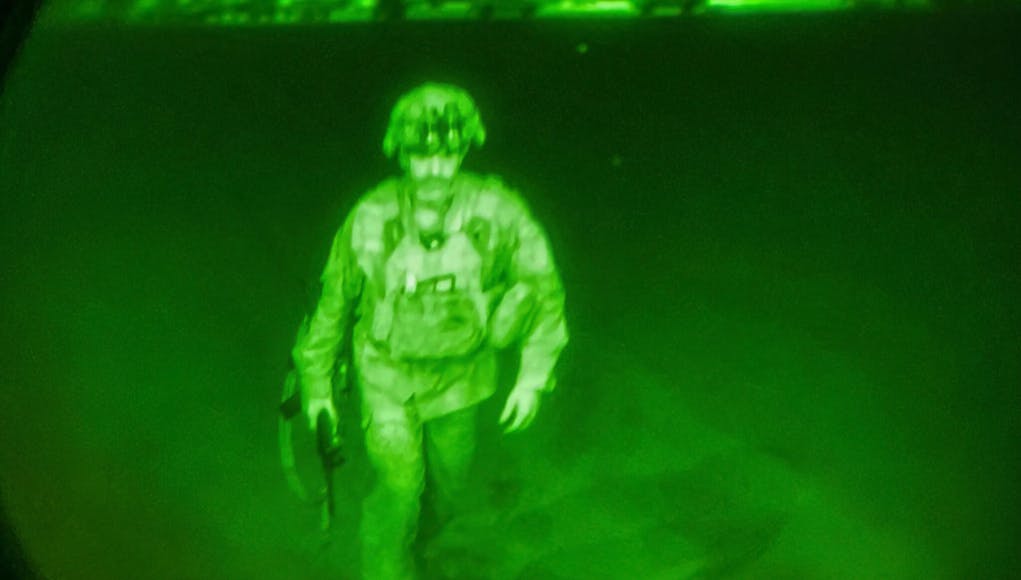
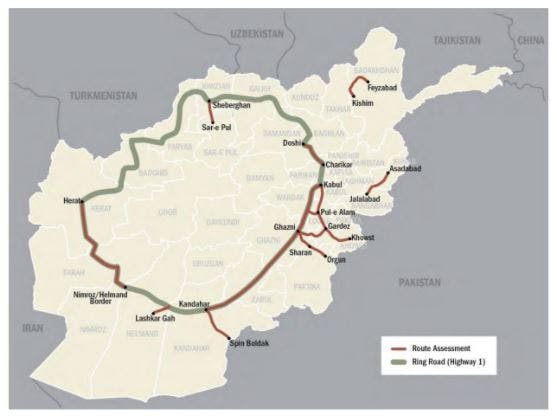



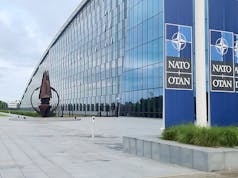


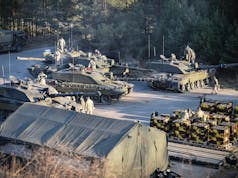


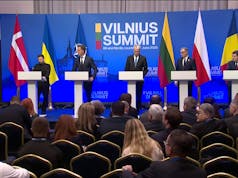

Removing air support too soon was one reason for the collapse of the Afghan army. Coalition losses had been minimal that year, I think it was crazy to lose a footprint at Bagram.
I’m still mystified as to why leadership decided to let it implode. Biden had received some intel at least that some Afghan army weren’t getting paid etc. It’s in their culture to go home and protect their own territories. Instead we placed them into a western culture or regiments and based far from their own town/cities. It was only natural they would flee.
But with China, Russia and the Asian theatre gaining more attention, maybe the powers to be decided it could be someone else’s headache. We blame Biden, but Trump had set the initial agreement and talked tough after the collapse. TBH I’m still angry about it all, it makes no sense to me why we committed so much to see it go bad. Some say we should of got out straight after Tora Bora. Certainty Iraq took the momentum away and as we know that invasion was questionable.
It’s a fair point Gary….
The whole Afghanistan adventure was poorly executed, with zero exit strategy.
It was always going to end badly, it was just a question of how badly and exactly when.
As for the Taliban shaking the charity tin, concerned for their ‘starving citizens’ what a laugh….
Well, meet international requirements for the treatment of women (among many, many other things) get your finances unlocked and behave like a grown up country….
You wanted the country, you’re got it, enjoy!
Interesting explanation. I’ve read many but this was new. On western side the thing that strikes me is i’ve never seen any evidence of how we were going to win. How we were going to defeat the Taliban. We never addressed the role of Pakistan. The Taliban was/is an arm of the Pakistani state. We were fighting Pakistan whether we understood that or not. There was no plan as to how to win or how victory could be achieved and if your fighting a war you cannot win then defeat is the only possible outcome.
Summed up extremely well…..
Dragged into an unwinnable bloody insurgency by Blair, bless him…..
I think you mean Sir Tony Blair.
(Sadly, I could not find a vomit emoji)
🤮 🤢 here you go
The one and only time Article 5 was called since NATO’s founding in 1949 it was after 9/11 in support of the USA. The enemy was al-Qaeda – their base was in Afghanistan. NATO in the shape of ISAF went into Afghanistan to take on AQ. Blair was incidental.
Exactly. Since 9/11 The West/NATO/US was largely fighting a war against the wrong enemy. Yes, the Taliban harboured Al Queda and deserved their overthrow in 2001/2002. But then it went wrong. Attention shifted to Iraq, a country that had nothing to do with terrorism or 9/11 nor had any WMD. Same goes for Syria and Libya. The 9/11 hijackers were from Saudi Arabia, finance for the Iraqi insurgency came from Saudi Arabia and Iran, the Taliban were sheltered and supported by Pakistan. The Saudis and Pakistan are considered as allies. Go figure 🤔 🙄…..
Yeah agree about Pakistan not sure about Saudi. With Pakistan your talking about the state with Saudi your talking about individuals. It doesn’t matter if you’ve just lost your legs to an I.E.D. whether it was some rich bastard in Riyadh or a General in Islamabad but on a state to state level it does.
True, perhaps in Saudi Arabia’s case it is individuals or groups that acted as participants. But as Saudi is an autocratic, monarchical state with all the accompanying security and surveillance ability, I find it hard to believe that there wasn’t some tacit support or averted gaze by state authorities.
Well proxy war is nothing new guys, states have been playing that particular game of poker for hundreds of years…
Pakistan and Iran, both supported by China and to a lessor degree Russia…
PMF’s in Iraq, Assad in Syria, Hezbollah in Lebanon, Hamas in Gaza and Houthis in Yemen. Iran is the proxy war king right now. I’m looking forward to them and Pakistan going head to head and cutting each others throats in Baluchistan or Herat but that’s probably just a dream ! 👃
Perhaps the Taliban should have borrowed the money to buy Typoons and Hawks, then we would have been our best friends no doubt….
We’ve been letting the very richest set policy too long & cosying up to the wrong people. That’s why we have such a dysfunctional system that turns people off voting: a corrupt bunch of amoral self-serving leaders & candidates who direct wealth in one direction only. The ordinary folk make all the sacrifices.
The truth is everything the west has touched the past 30 years turned into a nightmare policy ! From Somalia in the 90s to Afghanistan Iraq Libya Syria Yemen Mali it drove the west bankrupt and strengthen western rivals who meanwhile saved lots of money and modernised their military and increased their economic diplomatic Influence. The era of the west dominating militarily and economically frankly is over and I think many of us just don’t get it and think we can overcome it easily. The west is in much weaker position today than when it faced the Soviet Union. The Soviet biggest weakness was it economic model , today we face no war with a different economic model but autocratic states that mirror our economic model
Can’t disagree with a word of that.
Good post. The West is struggling relative to ‘the competition’ because it has forgotten that liberal democracy is the companion of Christianity not its replacement.
Another problem I found to be aggravating was hearing some ANA commanders claiming wages for “ghost armies”, for soldiers who don’t even exist.
It suggests a serious lack of oversight, which in itself is concerning, especially considering we talking about an organisation that is open to infiltration and is full of men with differing tribalistic loyalties.
What I want to know is.
What happened to the Afghan SF guys evacuated and the idea to either form a small British Army unit out of them, akin to the Gurkhas, or, integrate them into one of our units.
I read a lot of money was spent on them, and that they were highly regarded by western forces?
I imagine a stand alone unit without its own DS and replacement pipeline would make that idea a non starter?
Interesting that one Daniele, as you say , without a steady replacement pipeline, it’s a non starter.
I remain to be convinced that the majority of them can be integrated into the regular army, I suspect that they will find their place within the PMC community.
Agree, working for the firm.
Hopelessly naive for Biden to abandon Afghanistan unilaterally leaving everybody in the lurch unsupported. It sent the clear signal, intended or not, that the West can’t be trusted. After twiddling our thumbs while Assad butally wiped out opposition with Russian support & abandoning our Kurdish allies in Iraq to the Turks, it can only act as a green light to Russia & the PRC to be more aggressive & expansionist. Or any authoratarian state or that matter.
Lions led by donkeys & wolves in sheep’s clothing. Has freedom, democracy & justice ever been so poorly led as these last few decades?
Turkey even with the US In Iraq invaded northern Iraq to fight PKK terrorist in 2003. Turks never take permission from Washington over its borders with Iraq or Syria . Remember the Turkish border is a NATO border and the US acted reckless with the Turks. The US is solely to blame to bring Russia into Syria and giving them access to the Mediterranean sea.
The Russians have had a naval base in Syria for decades.
True they had a base , but what forced the Russian troops in though was the slow motion of the US and NATO , they caused chaos and watched on without By plan whatsoever!. Then Russians came in and took advantage of the situation. The opposition groups if the policy was regime change would have likely toppled Assad , but that was not policy and then the Russians came for their man Assad in support. The Turks felt frustrated seeing Syria handed over to the Russians Russians and see the PKK trying build a state on its border .
A very interesting analysis which sounds spot-on. We are often fixated on Helmand province and it is good to see the wider picture. Strategically there seems to me to be 2 issues.
It also didn’t help that US was allowed to set up the replacement government in both Iraq & Afghanistan & went for a USA style elected King (executive President). This is the worst style of government for a country that is split by tribalism & ethnic groups that don’t get along. You end up with a single winner who can then ignore everyone else (& usually does). While it is definitely harder to get things done in a Parliamentary style government, it’s easier to make disaffected groups feel part of the system. You can also get rid of a Prime Minister in 5 minutes without shooting them in the head.
The whole of Astan politics has always been about weak central government and constantly shifting tribal politics (so as to be on the ‘winning’ side – which changes constantly) so no the Warlords issue wasn’t an issue. Its the total lack of buy in and shifting sands of Astan politics (for gain) that’s the issue.
The massive use of depleted uranium through the whole conflict is the main cause of the eventual collapse. Massive levels of diseases and birth defects, agricultural damage at acute levels, have consistently nurtured the support to all opponents of the Western coalition.
Great article. Agreed.